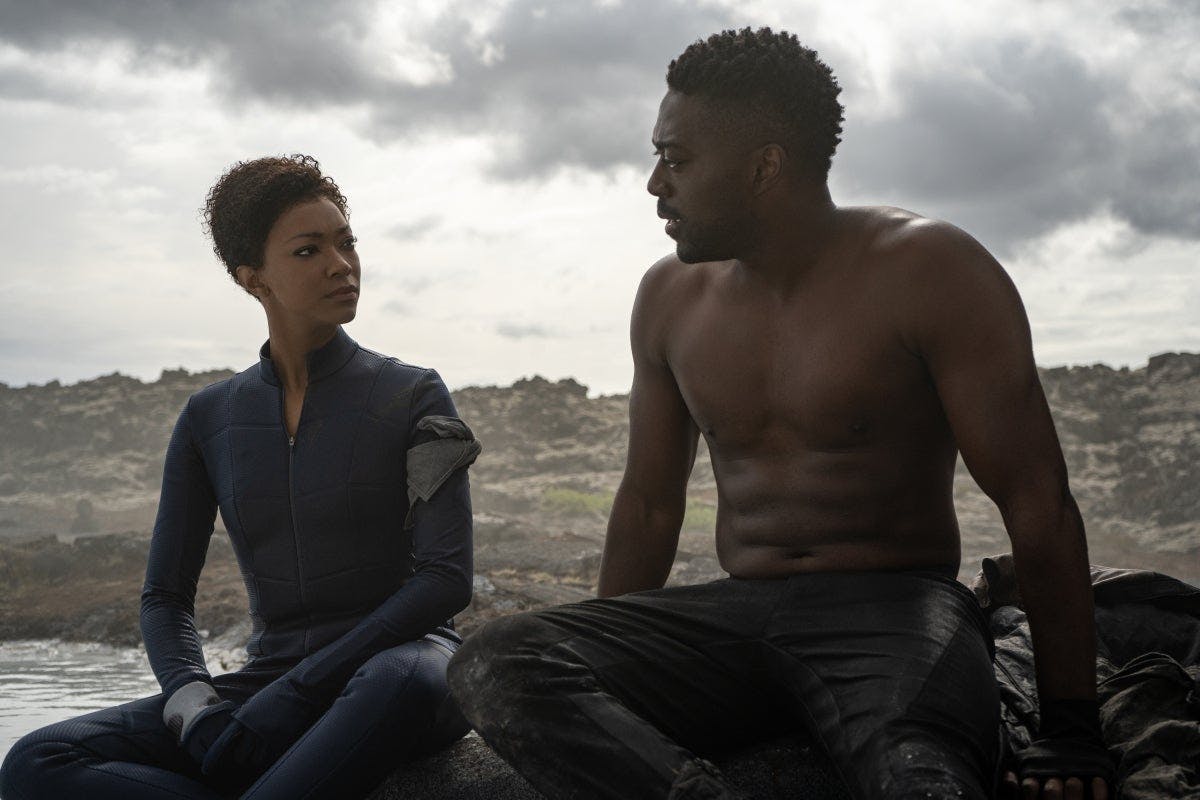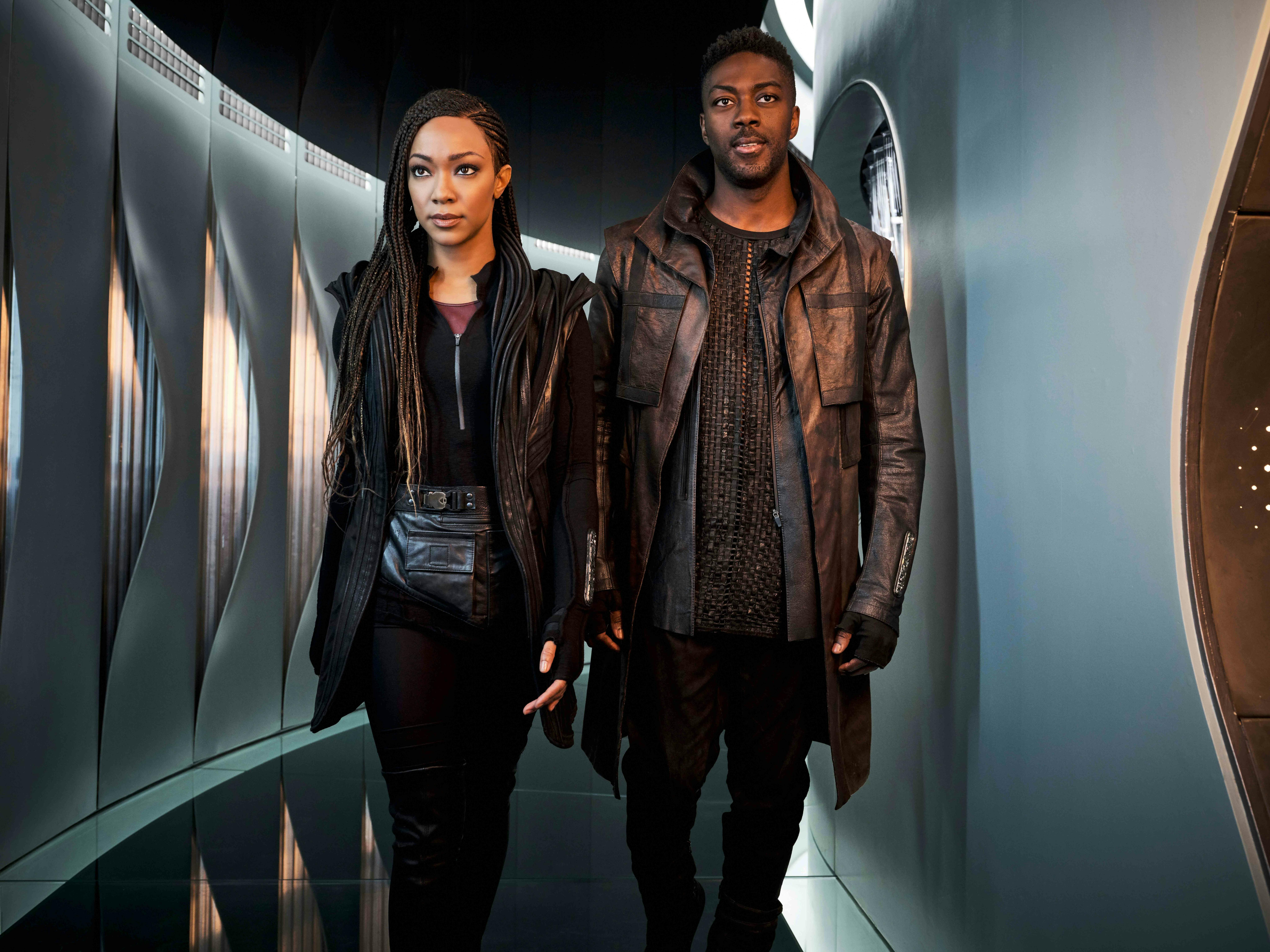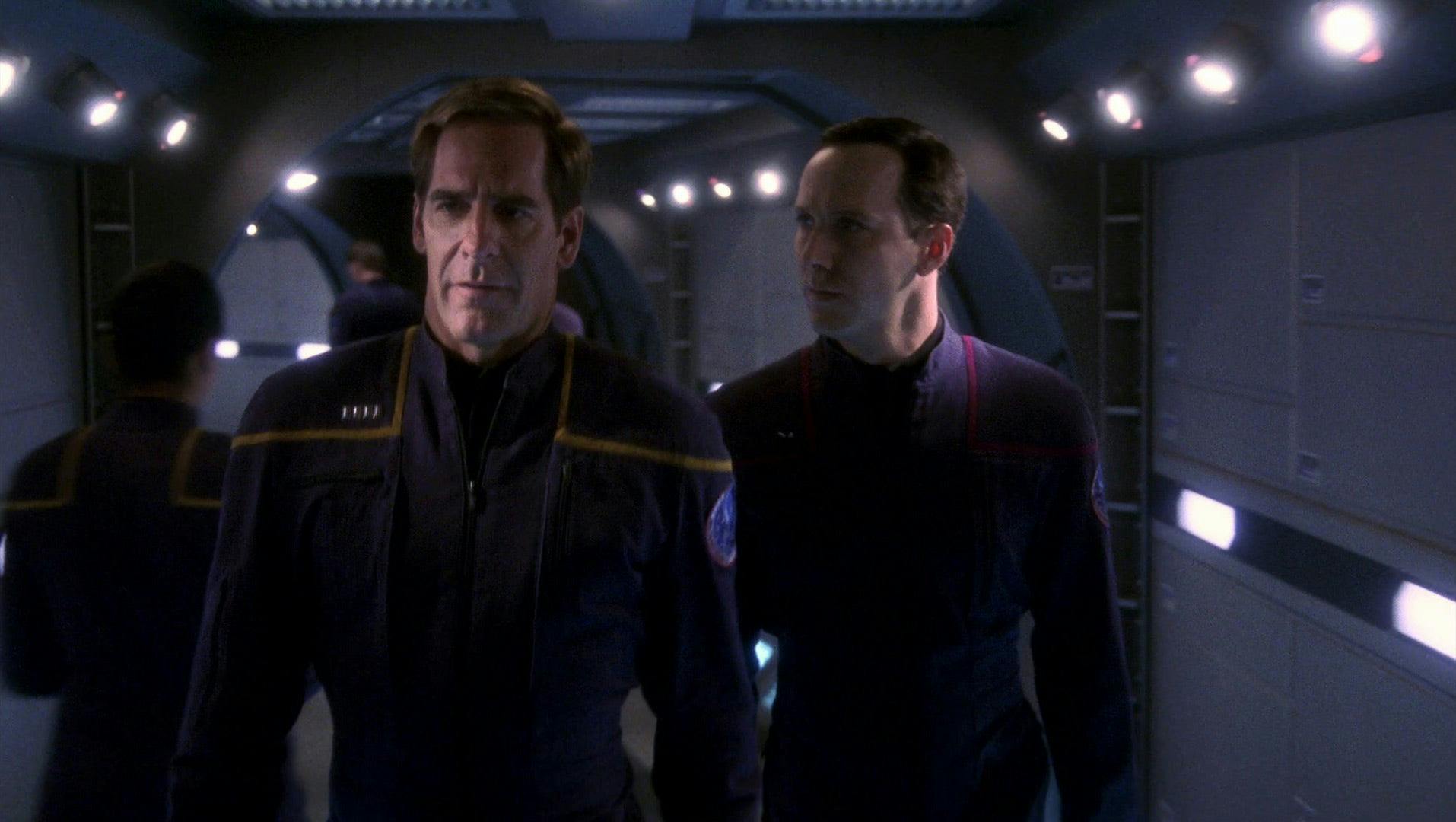Published Oct 19, 2020
How Discovery May Have Just Wrapped Up a Big Enterprise Plotline
One simple line referenced a major Enterprise storyline and established a new past.

StarTrek.com
The brave new world of Star Trek: Discovery might be set in the 32nd century, but the Season 3 premiere episode — “That Hope Is You, Part 1” — helped tie-up loose ends from the 31st and 22nd centuries, too. When it comes to the rules of time travel, Book (David Ajala) tells Burnham (Sonequa Martin-Green) a few things that only fans who watched all four seasons of the prequel series Star Trek: Enterprise might fully understand.
Here’s why one quick piece of dialogue from Book in the Discovery Season 3 premiere sews together threads from a major plotline on Enterprise and the rest of the Trek franchise all at the same time.
Spoilers ahead for Star Trek: Discovery Season 3, Episode 1, “That Hope Is You Part 1.”

StarTrek.com
Throughout the first three seasons of Star Trek: Enterprise, and the beginning of the fourth, the crew of the NX-01 Enterprise unwittingly participated in a Temporal Cold War waged by shadowy combatants from their distant future. Captain Archer’s only real ally in this fight was a Temporal Agent named Daniels, who initially worked undercover as a faux-Starfleet officer before revealing himself as a time traveler in the Enterprise Season 1 episode “Cold Front.” Daniels originated from a point in the 31st century, and his mission was basically to make sure, in his words, that the timeline of the 22nd century wasn’t “screwed with.” To this end, he even brought Archer to the barely-glimpsed USS Enterprise NCC-1701-J in the 26th century in the Season 3 episode “Azati Prime,” to prove how the Federation helps to shape a positive future. Throughout all this time-travel war waging in the background of Enterprise, several factions fought to destabilize the history of the 22nd Century, including the Suliban, the Na'kuhl, and the mysterious Sphere Builders. All of these factions, including the 31st-century resident Daniels, were from Captain Archer’s future, and relative to the rest of Star Trek history, they were also in the future for Kirk, Picard, Sisko, and Janeway. And, they were in Burnham’s future, too.

StarTrek.com
But not anymore. Now, the future-forecast from Star Trek: Enterprise is in Burnham’s past. The year 3188, the year in which Burnham emerges from the wormhole, is at least a century past the 31st century where Daniels and his temporal agents operated from. And from what Book tells Burnham about “The Burn” in Discovery Season 3 premiere, it’s not only been a while since time travel was as common as it was for Daniels but more specifically, everything that Daniels and the other factions did specifically caused time travel to be outlawed. Book is a pretty smart guy and has Burnham pegged as a time traveler way before she talks about it openly. And it’s at this moment, Book reveals a vital piece of information that piggy-backs on what we knew about the 31st century in Enterprise.
“I don’t know how came by whatever you used to get here,” Book says, referring to Burnham’s time suit. “All time-travel technology was destroyed after the temporal wars. Outlawed.”
Relatively speaking, the Temporal Wars occurred in all sorts of different places and times. Arguably, the USS Enterprise NCC-1701 and the USS Discovery fighting Control in 2257 is another iteration of a different kind of Temporal War. In fact, in “Such Sweet Sorrow Part 2,” Spock even attempts to encourage Starfleet to double-down on making time travel illegal in the 23rd Century, with the hope of preventing a temporal conflict on the scale of what he saw happen with Control. Obviously, we know Spock ends-up time traveling a lot in his own life, but in Spock’s defense, just like his sister Michael, he didn’t always have a choice.

StarTrek.com
The point is, Book’s comment about the temporal wars is very pointed. Of all the factions mentioned by Daniels in the Temporal Cold War, his side was the one that was the furthest in the future; in the 31st Century. But, again, Daniels and his cronies are all in Book’s rearview mirror. If Book’s history is correct, it seems like that at some point after the Temporal Wars were over, time travel tech, at least legal time travel was totally eradicated. In “Storm Front Part 2,” after the Enterprise NX-01 stops the Na'kuhl in an epic battle in an alternate version of 1944, Daniels tells Archer that the timeline has basically been reset and that everything is back to normal. Book’s parents or grandparents probably didn’t know Daniels personally or even anyone who was involved with the Temporal Wars. But then again, you never know. Book knows that the Temporal Wars directly led to time travel being outlawed.
If you’re a casual Star Trek fan, Book’s line about the Temporal Wars quickly helps you understand why Burnham’s time travel tech is such a big deal in the 32nd century. But, in this one moment, it indicates Book is the person who has unique insights not only on the 32nd Century but, retroactively, all of Star Trek history. True to his name, Book contains multitudes.
This Season on Star Trek: Discovery | Season 3 Sneak Peek
Ryan Britt's (he/him) essays and journalism have appeared in Tor.com, Inverse, Den of Geek!, SyFy Wire, and elsewhere. He is the author of the 2015 essay collection Luke Skywalker Can't Read. He lives in Portland, Maine, with his wife and daughter.
Star Trek: Discovery streams on Paramount+ in the United States, airs on Bell Media’s CTV Sci-Fi Channel and streams on Crave in Canada, and on Netflix in 190 countries.

